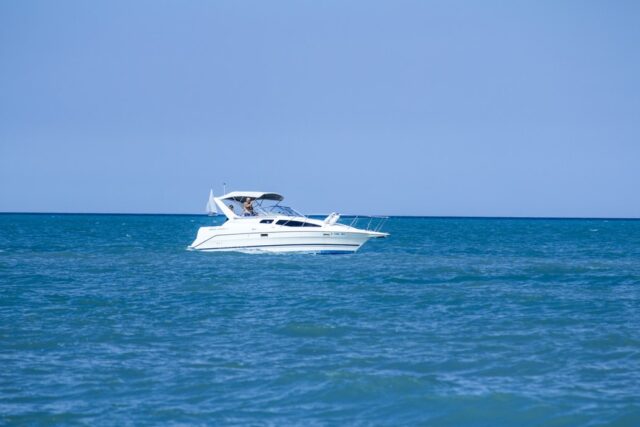
Owning a boat can help you pursue a number of hobbies, including fishing, wakeboarding, or just relaxing on the water with friends. If you have any affinity for the sea (and you live by the water), you might dream about the day you can use your vessel to celebrate your favorite environment. But the cost of a boat may seem prohibitive to newcomers.
Fortunately, there are many strategies that can help you get a boat for a better price.
How to Get a Better Deal on Your First Boat
Try these strategies to score a better price on your first boat:

- Know your budget in advance. First, you’ll want to set a budget in advance. You need to know how much of a boat you can realistically afford, and where your limits are. This will help you feel more confident when negotiating and better understand the most appropriate vessels for your needs. Keep in mind that the purchase price of the boat isn’t all you’ll need to consider; you’ll also need to think about the costs of insurance, docking, storage, maintenance, fuel, and other secondary expenses. The true cost of boat ownership is often greater than people initially estimate – but don’t worry, you can still almost certainly find something within your budget.
- Do your research. Next, make sure you do your research. Long before you get ready to make an offer on a boat, you should be familiar with the major types of them available, the manufacturers and brands associated with those boats, and the typical prices you’ll pay for them. Armed with this information, you’ll be much better capable of spotting a good deal when one arises – and you’ll know when not to bother. If you don’t know where to start looking, you can check out some of the reliable sites such as atlanticboat.ie. They have a large knowledge on boats of different kinds and they might be able to help you in terms of the type of a boat you are looking to buy or rent.
- Attend boat shows. No matter where you eventually buy a boat, it’s a good idea to visit some of the shows. This is your opportunity to see boats up close and in person, so you can see how they look and feel when you’re on board. It’s also a great chance to talk to manufacturers, dealers, and boating enthusiasts, who can share their best tips and give you more information with which you can make your purchasing decision.
- Shop online. Don’t get ahead of yourself and buy the first boat that looks good at a boat show. Spend some time looking for boats online as well. Oftentimes, you can find a wider selection of them available online – and get them for a lower price too. Shopping online is also convenient, since you can do it anywhere as long as you have a device with an internet connection.
- Don’t be afraid to negotiate. According to TheYachtMarket, wherever you’re buying a boat, prepare to negotiate on price. Whether you’re buying from a dealer, a manufacturer, or an individual seller, you’ll often find wiggle room on the listed price. Make an offer you think is fair for the vessel, while simultaneously pushing for a better deal; if you’re assertive and backed with research, you’ll often score a better final price.

There are several ways you can better position yourself here. For example, you should spend ample time looking up prices for similar boats on a variety of different platforms. You can check a boat trader website for affordable and a variety of boats in the market. If you know that the average sale price for this boat is lower than its current sticker price, you’ll have objective data on your side. Additionally, it’s a good idea to practice negotiating if you don’t have much experience; doing so will help you polish your techniques and give you more confidence you can use to take a stronger stance during the negotiation.
- Get better financing. If you’re like most people, you don’t have the free cash necessary to buy a boat outright; instead, you’ll be dependent on financing. If this is the case, shop around to get the best possible deal from a lender. Even a slightly lower interest rate can amount to hundreds to thousands of dollars saved over the lifetime of the loan. Pay close attention to not just the interest rate, but also the closing costs (if applicable), additional fees that may apply, and the terms and conditions you’ll have to follow to get the loan.
- Skip the extra features. If you’re buying a new vessel from a dealer or manufacturer, you might have the option to upgrade your purchase with extra features and luxury items. For the most part, you can skip these; doing so will cut the final price of the vessel, and you can always add your own upgrades later. In fact, most of the time, it’s less expensive to buy the new parts and install them yourself.
- Look for used vessels. Getting a new vessel may be exciting – especially since you’ll have full confidence that the boat will be in reliable working order – but buying a new boat isn’t always in your best interest. You can often find a much better deal if you’re willing to buy used. Used boats are often in good shape, like new, but due to depreciation, they’ll be listed for much lower than a new equivalent. Plus, you’ll have a much wider selection if you include both new and used vessels in your search.
- Remain patient. Try to be patient when boat shopping. Don’t panic and succumb to fear of missing out (FOMO). Be willing to walk away from a deal that doesn’t make sense and have faith that the right deal will come along (as long as you keep looking in the right places).
- Get an inspection before closing the deal. Finally, if you’re buying used especially, get a boat inspection before closing the deal. You want to make sure you’re getting your money’s worth.

Enjoying Your New Boat
Once you’ve gotten a good boat for a great price, you’ll want to get your money’s worth and enjoy it as much as possible. If you want to preserve your investment, it’s important to practice routine maintenance and care; with the right approach and a proactive mindset, your vessel can last for many years, if not a lifetime.









